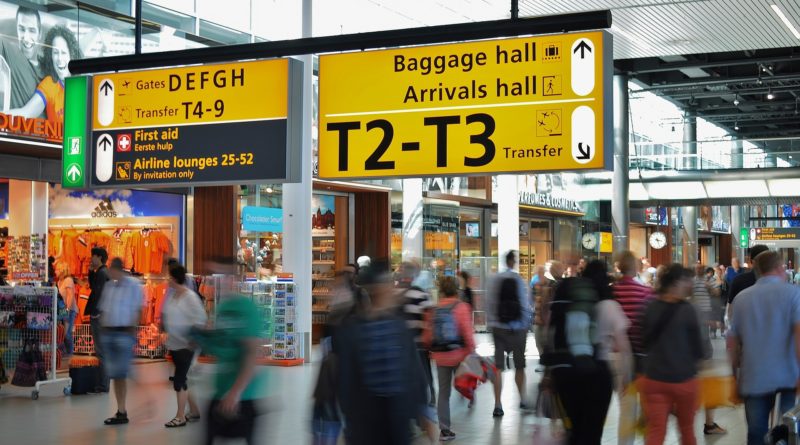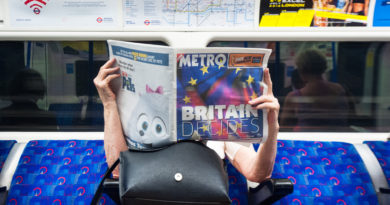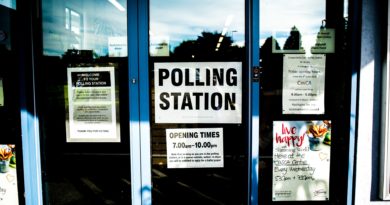What happens if there is no Brexit deal
The European Union and the United Kingdom just completed a week of negotiations to disentangle the country from the bloc. Fundamental disagreement remains on a number of issues, including citizen’s rights, the amount the UK should pay to settle its accounts and the body that supervises the enforcement of the Brexit deal. Then there is a new trade relation to build for the future. These topics will keep negotiators busy for the next 18 months, but the impending question is: what happens if there is no deal?
Article 50 of the EU Treaty, which rules countries’ exit from the EU, only says that EU laws cease to apply once a state leaves the Union. It does not specify which arrangements should be put in place in that event. The British government has already threatened to walk away from the negotiations if the terms of exit are not advantageous. “No deal is better than a bad deal,” has repeated several times Theresa May, the Prime Minister.
What would be the impact of this scenario? And what will happen to the 3 million EU citizens living in the UK and the 1.2 million British in the rest of the EU? The UK in a Changing Europe, a research programme based at King’s College London, has examined the options.
The analysis admits to be “speculative” and to focus on the worst possible scenario. Nevertheless, it gives an idea of the implications of a ‘no deal’.
“Chaotic Brexit”
The report says the UK departure from the EU could take four different shapes: a smooth Brexit if all goes well and by March 2019 there are both an exit deal and a new trade agreement; a transitional Brexit, if the terms of the departure are agreed and discussion is progressing on a future trade agreement; a cliff-edge Brexit, if the terms of the departure are agreed in absence of a new trade agreement; a chaotic Brexit if there is no agreement at all. In the latter case, the UK could leave prematurely and terminate the enforcement of EU laws on its territory, or it could just fade out of the EU with no agreement at the deadline.
The report argues that even if the UK walked out of the negotiations, it would remain a member of the Union until 29 March 2019. EU laws should therefore continue to apply for both EU citizens in Britain and Britons in other EU countries.
If the UK decided to also stop immediately the enforcement of EU legislation through the repeal of the European Communities Act, EU nationals in the UK would no longer be protected by EU laws. Instead, the EU Withdrawal Bill (the Repeal Bill) would determine what rights will continue to apply. Presented earlier in July, the bill transfers EU laws into national legislation and is meant to ensure legal certainty after Brexit. On this basis, current rights are likely to remain in place “pending any change introduced by a future Immigration Bill.” The explanatory notes accompanying the act, however, say that rights could be curtailed if there are no reciprocal guarantees for British citizens in the EU.
In relation to this ‘premature Brexit’, the EU could consider the UK in breach of international law under the Vienna Convention of the Law of the Treaties and decide to terminate or suspend EU Treaties. If so, UK citizens in the rest of the EU would “become third country nationals overnight.”
If there is no deal by the end of the two-year period, current rights should also continue to apply, according to the authors, unless the government or the parliament change them after the Repeal Bill.
In any event, the situation will not be sustainable in the long term. “Without any agreement, EU citizens in the UK would be in a form of legal and political limbo – not illegal, but with their status at best anomalous. This would particularly be the case for those who have no documentation certifying their permanent residency – the vast majority – and for the very large minority who could not, as of Brexit Day, qualify for permanent residency under the current rules since they lack five years of residence.” Questions over their legal position might also lead to restricted access to public services, housing, employment and, overall, a disruption to normal life.
In such case, the report speculates, the government could ‘regularise’ the situation offering unilateral guarantees. Researchers assume this would mean applying the proposal on EU citizens’ rights published on 26 June 2017, that partly reduces existing rights with regard to family reunification.
Regarding British citizens in other EU countries, “it would be up to individual member states to decide how they implement EU legislation in domestic law.” Some EU countries apply EU directives on the status of third country nationals, but these do not cover all current rights.
“It is of course possible that individual member states may take action, either directly through legislation, bilaterally via a deal with the UK, or indirectly through benign administrative neglect, to ensure that the worst consequences of this scenario do not materialize,” says the report. However, “it seems highly probable that in at least some countries some UK citizens would find their lives disrupted.”
Two options
The report concludes prospecting two scenarios. Under the first, the EU27 and the UK “would seek to reassure resident citizens by unilateral actions, legislative change and administrative forbearance.” Over time, the ambiguities will have to be corrected, either through a deal between the EU and the UK or with bilateral agreements. Meanwhile, “considerable numbers of citizens” would likely “vote with their feet” and leave.
A more pessimistic option goes as far as suggesting a sudden legislative vacuum in some EU27 states, bringing many UK citizens into a limbo. “The resulting political and media reaction would mean that the UK government finds itself under pressure to retaliate by taking action against EU citizens resident in the UK, at least those who have not yet qualified for permanent residence,” say the report.
Immigration barrister Jan Doerfel has criticized the paper for not having taken into account that the EU has already presented an offer that covers also the rights of UK citizens.
“The UK government’s present offer to EU nationals is an absolute rock bottom minimum which has already been widely rejected by EU institutions and governments. A much more generous position has been expressed by the EU, seeking to protect rights of all EU citizens, including UK nationals in other EU countries. In addition,” he says, “it is offensive to suggest that the UK government would be merely a reactive agent ‘forced’ by ‘political pressure’, other countries’ practices or the media to deny EU nationals and their family members’ residence rights that should be respected. The UK has a choice on the position to take and the government holds responsibility for it.”
Doerfel also believes that the report underestimates the consequences of not reaching a deal, even if current rules continue to apply. “EU citizens and their non-European family members relying on EU rights might experience difficulties at border control, unless very clear instructions will be given to the border force and entry clearance officers,” he warns.
Considering the high degree of uncertainty, civil rights campaigners have been calling on the UK and the EU to reach an agreement on citizens’ rights as a matter of priority and to ring-fence it from the rest of the negotiations. In this way, rights will be protected regardless of the final outcome.
This, however, won’t protect people from the economic consequences of not reaching a Brexit deal. According to the UK in a Changing Europe report, the impacts of this scenario could be severe across all sectors. “UK’s nuclear plants may not be able to operate; British airlines might be unable to fly,” says the paper. Cross-border supply chains could also be disrupted, there would be legal chaos over the enforcement of contracts and investment in the country would decline as a result of a fall in business confidence.
This would be catastrophic. But it is worth reminding that the report focused on the worst of all scenarios, while other – more positive – outcomes are possible.
Claudia Delpero © all rights reserved.
Photo via Pixabay.




